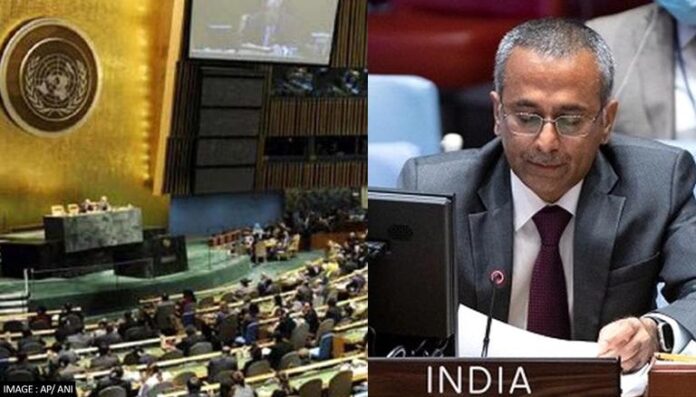Terrorism will continue as the single most crucial threat for peace and security and one of the biggest obstacles to achieving the common agenda of the United Nations, India said on Tuesday. Speaking at the UN General Assembly, Deputy Permanent Representative (Political Coordinator) to the United Nations, R Ravindra shared India’s preliminary perspectives on the Secretary General’s “Our Common Agenda” report.”Our Common Agenda” report looks ahead to the next 25 years and represents the Secretary-General’s vision on the future of global cooperation and reinvigorating inclusive, networked, and effective multilateralism.”The Secretary-General presented his report to the General Assembly in September 2021 before the end of the 75th session of the General Assembly.While lauding the UN Secretary-General’s proposals captured in the report, the Indian ambassador said, “Our vision should embrace reformed multilateralism, gender, human rights, development, counter-terrorism, climate change and environment, financing, pandemic and vaccines, peace and security and other priorities.”He said that there are certain areas that need greater focus at the world forum. “For e.g. I am aware, of the importance, Secretary-General has placed on combatting terrorism and we commend the work of the UNOCT. But terrorism as a priority has been dealt with rather cursorily in the report.””In fact, the word terrorism appears only twice in the report whereas ‘climate change’ appears more than twenty times and the word ‘climate’ more than seventy times. I do hope that this can be remedied sooner than later since terrorism will continue as the single most crucial threat for peace and security and one of the biggest obstacles to achieve the common agenda,” he added.Appreciating the focus on climate change, Ambassador Ravindra noted that India is the only one of the G-20 on the path to Paris targets.”But as we have emphasised earlier, India is the only one of the G-20 on the path to Paris targets. We are nowhere close to USD 100 billion. Further, the Net-Zero has to be a Global Net-Zero where the developed countries should, in fact, vacate carbon space by 2050 for developing countries.”The Indian envoy said the world must need a Net-Minus from developed countries since individual Net-Zero, without application of CBDR, will disproportionately impact developing countries only.
ABOUT US
Sach News® - raising the voice of people of Jammu Kashmir since 1940. We are Publishing House of Daily Sach (Urdu Daily). Sach News, is one of the Oldest News Group of India having its office in Jammu Kashmir, Delhi. Reach us for Latest news on politics, sports, crime, education, real estate, business entertainment and much more. We provide you with the latest breaking news and videos straight from the ground zero.
Contact us: [email protected]
© Sach News Network 2011-2024 | Maintained by Sach Info Tech


